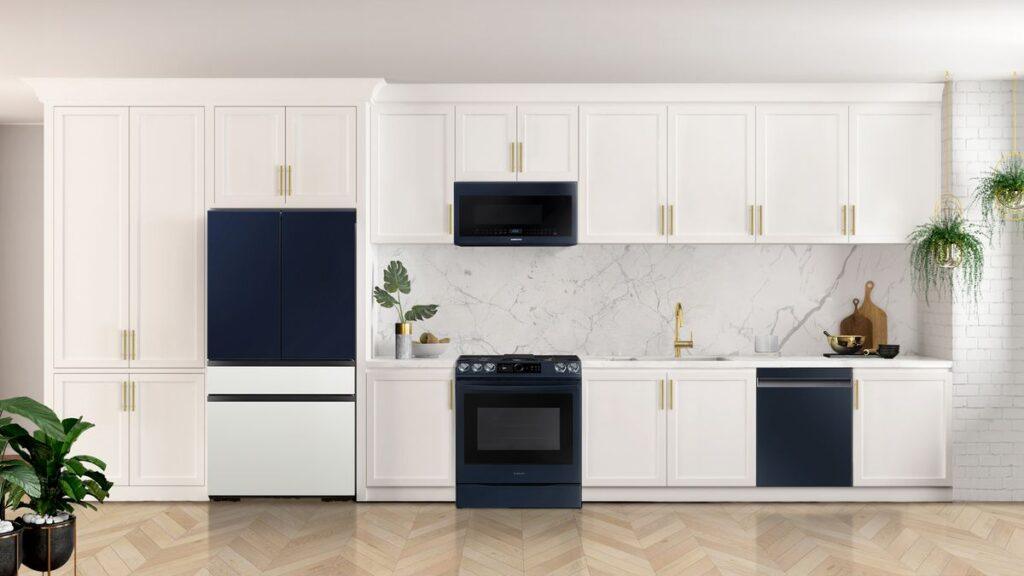During Samsung’s Galaxy Unpacked 2025 event, its SmartThings division unveiled new AI technology that could be set to boost the smart home experience—provided it has a Samsung-based ecosystem, of course.
The new tools will be listed under Samsung’s Home AI name and will include “ambient sensing,” a feature that collects information from the connected devices in your home and adapts to your daily life to make your smart home more efficient.
We don’t have a confirmed release date yet, other than a wide 2025-2026 rollout window, which means there’s plenty of time to equip your smart home with SmartThings-enabled hardware; Just keep in mind that most features will likely be exclusive to Samsung devices, at least in the short term.
Here are the answers to all your burning questions…
What is environmental sensing?
Chief among these new developments is ambient sensing, through which SmartThings devices will be able to leverage advanced sensor technology, such as motion and sound detection, to monitor your daily activities and create the perfect environment for every moment.
Many of Samsung’s devices feature these types of sensors, from the new Bespoke JetBot Combo AI robot vacuum to Samsung’s large appliances and the Samsung Music Frame, meaning you may already have some devices in your home that are will benefit from new environmental sensor technology.
What will Samsung’s environmental detection do?
Samsung provided some examples of what its environmental sensing technology will be capable of:
- Human detection and activity monitoring: SmartThings will be able to use sensors to detect different activities such as doing push-ups, sleeping or even working at your desk. This information will be used to recommend better routines and improve your environment.
- Health Knowledge and Lifestyle Recommendations: SmartThings won’t just tune your devices; To help you stay healthy, SmartThings will provide you with real-time information, such as reminding you to move if you’ve been sitting for too long.
So what would this look like in practice? For example, while you’re exercising, Samsung says SmartThings will be able to detect what type of exercise you’re doing, offering guidance on your form and giving recommendations on how to increase your gains by changing the duration of the exercise.
If you’ve just gotten into the shower, the sound and movement that occurs while you’re drying your hair could cause your robot vacuum to pick up any hair you lose in the process, or create a more ambient environment when you approach your chair. favorite reading time by switching on the nearby lamp and adjusting the room temperature.
Or, if you have a particularly furry friend at home who emits flurries of hair when jumping on furniture, SmartThings could even recognize it and activate your air purifier to remove allergens from the air.
In fact, it’s a development I discussed with several executives at CES 2025, although I couldn’t get a sense of how soon these features might manifest; I know now and I am delighted that this is happening much sooner than I had anticipated.
Generative AI Map View
The fun doesn’t end there; SmartThings is also set to upgrade its AI Home arsenal with generative AI technology, i.e. adding more customization to its map view.
Now, Samsung says you’ll be able to use your phone’s camera to capture images of the furniture in your home to make Map View more accurate to your style.
That, in turn, means you’ll have a better user experience when it comes to navigating and interacting with your smart home, as Map View will know where your furniture is and will be able to take advantage of new proximity-based environmental sensing technology. .
Will SmartThings keep my home data safe?
The short answer is, Samsung says, yes.
The longer answer is that Samsung will store all information locally on its network, offering privacy by keeping data within Samsung appliances and devices rather than relying on the cloud. That means, Samsung says, that your data will not be accessible to third parties without your consent.
Frankly, Samsung is light years ahead of its competition in smart homes, due to its combination of a wide range of product categories in home and lifestyle devices, its global popularity, and its various partnerships with companies like Google for its smart home tools. artificial intelligence, as well as its collaboration with the Connectivity Standards Alliance on Matter.
Frankly, Samsung is light years ahead of its competition in smart homes, due to its combination of a wide range of product categories in home and lifestyle devices, its global popularity, and its various partnerships with companies like Google for its smart home tools. artificial intelligence, as well as its collaboration with the Connectivity Standards Alliance on Matter.
Frankly, Samsung is light years ahead of its competition in smart homes, due to its combination of a wide range of product categories in home and lifestyle devices, its global popularity, and its various partnerships with companies like Google for its smart home tools. artificial intelligence, as well as its collaboration with the Connectivity Standards Alliance on Matter.




